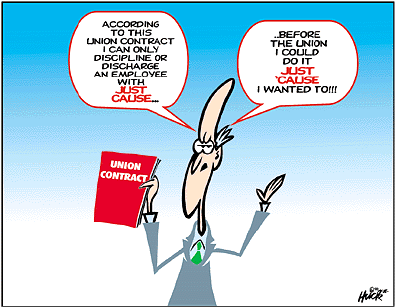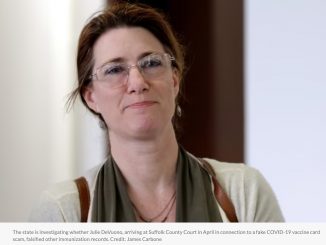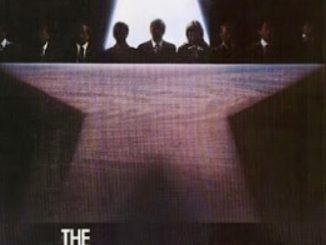
From the desk of Betsy Combier:
The procedures mandated by Education Law§ 3020-a law have been ignored, erased, and denied to all tenured educators charged with misconduct or incompetency in New York City. This 20+ year effort to deny tenured employees of the New York City Department of Education their protected rights secretly and under color of law has one goal: to remove tenure from the labor force. But tenure remains public policy in New York State. As a paralegal/researcher, I offer my research here in order to de-mystify why excellent educators are charged with false allegations and then terminated for doing something that they did not do; and/or why educators are not terminated for bad acts that they did do, but others were held accountable.
Education Law §3020 states in relevant part:
No person enjoying the benefits of tenure shall be disciplined or removed during a term of employment except for just cause and in accordance with the procedures specified in section three thousand twenty-a of this article
and,
“The tenure statutes reflect the intent and purpose of the Legislature to protect educators who have successfully completed a probationary period from being disciplined summarily without the safeguards of Education Law § 3020-a. As stated by this Court in Holt v. Board of Educ. of Webutuck Cent. School Dist., 52 N.Y.2d 625 (1981): At one time, teachers in this state had only so much job security as could be bargained for in their contract of employment. When that contract expired, the decision as to whether or not to continue the teacher’s employment was completely within the discretion of the school district. The Legislature, recognizing a need for permanence and stability in the employment relationship between teachers and the school districts which employ them, enacted a comprehensive statutory tenure system, the purpose of which was to provide some measure of security for competent teachers who had rendered adequate service for a number of years. One of the bulwarks of that tenure system is section 3020-a of the Education Law which protects tenured teachers from arbitrary suspension or removal. The statute has been recognized by this court as a critical part of the system of contemporary protections that safeguard tenured teachers from official or bureaucratic caprice. Id., 52 N.Y.2d at 632”
From In the Matter of Roseann Kilduff, Respondent,v.Rochester City School District, et al., Appellants, Court of Appeals No. APL-2013-0029:
“In Matter of Boyd v. Collins, 11 N.Y.2d 228 (1962), this Court had annulled an agreement between a board of education and a teacher under which the teacher would resign after a stated period in lieu of charges. The Court plainly stated that the “statutory tenure terms can be changed by the Legislature but never by a board of education.” Id. at 233. As summarized by the Court in Mannix, supra, “[i]t was made clear in [Boyd] that no act of a board of education could effect a method of bypassing the tenure statute.” Mannix, 21 N.Y.2d at 459. Although Boyd was subsequently overruled in Matter of Abramovich v. Board of Educ. of Cent. School Dist. No. 1 of Towns of Brookhaven & Smithtown, 46 N.Y.2d 450 (1979), it was overruled solely on the ground that the law does not absolutely forbid a tenured teacher from waiving the protections of the tenure statutes if the record establishes a truly knowing, open and voluntary waiver. Id. at 455.”
NYSUT lists changes to tenure in Chapter 56, 2015
and,
APPR & Tenure Decisions in the Aftermath of COVID-19
In NYC, there is no voluntary waiver, and the Constitutional protection of tenure has been modified to fit the whims and fancy of a principal or superintendent who says to the legal department, “get rid of that person”. However, no change has been made to Education Law §3020-a(2)(a), which gives the details on obtaining a probable cause determination by a vote of the Board of Education (PEP in NYC). The PEP BYLAWS do not give the Chancellor a vote, rendering any delegation of the vote to a Superintendent or principal by the Chancellor meaningless paper. Most shocking of all is the fact that the New York City Department of Education (“NYC DOE”) and the Unions (UFT/NYSUT, CSA) have collaborated in this scheme that deliberately violates lawful procedures, is arbitrary and capricious, an abuse of discretion, and affected by an error of law. I might even say that the process could be extortion. Educators are brought to §3020 hearings without being told any of this. Therein lies the fraud that I write about here, and this is what we – all of us in the community of the world – have to change. False statements published in bad faith against a person destroy that person’s life forever. No apology after the fact can change that.
Nonetheless, if you know who you are, you will get to where you want to be.
As Lewis Carroll wrote,
“If you don’t know where you’re going, any road will get you there.”
So many educators have called me after their hearing decisions have been issued by the arbitrator, saying “How could this happen?” “How could I be terminated/given a fine/suspended for something I did not do?”
Tenured employees of the NYC DOE at any level, unaware that their tenure rights under the §3020-a statute have been illegally implemented, rely on the very same people at their Union who have created the unlawful procedures. All anyone has to do to prove this point is to demand that your CSA or NYSUT Attorney, who is designated your representative for an Education Law §3020-a arbitration, submit any of the arguments above into the hearing record. Your rep. will immediately quit, or threaten to drop your case if you pursue this demand.
I always suggest that accused educators rely on their own beliefs and common sense. Just rely on yourself. Find out and believe in who you are and what you want, and, if your intent is strong and your goals are “right” – as opposed to unlawful or harmful to another person or animal – you will reach your goals. This process must be constantly renewed, so do not rest on what you have done, keep planting new ideas on your path. Who you are now will change tomorrow, just as you were a different person yesterday.
The Backstory of Education Law §3020-a in New York City
In the compulsory Arbitration known as Education Law Section §3020-a (“§3020-a”) in New York City, there are significant and unlawful procedural and substantive deficiencies in the pre-hearing process that interfere with the public policy protections for teachers with tenure. These blatant violations of the tenure law deny a fair hearing to all individuals who are accused of an act of misconduct or incompetency and are charged with §3020-a charges (called “Specifications”).
“New York public employees enjoyed disciplinary due-process protections long before they won collective bargaining rights with the 1967 passage of the Public Employees Fair Employment Act, also known as the Taylor Law. But in requiring public employers to negotiate “terms and conditions” of employment, the state Legislature set the stage for union contracts to become obstacles to disciplining public employees.”
Tenure is public policy in New York City. The Unions in New York State are supposed to be the warriors who protect the Constitutional rights to a full and fair hearing if these protections are denied or threatened, but this is what has been eroded by the employers who do not want to be blocked from firing somebody. Employers want “at-will” employment for everyone. Therein lies the problem that is addressed in this post.
You can see this struggle between employer-unions here:
See Double Insulation: How New York Law Shields Public Employees From Accountability
What happens then is that policymakers write “manuals” on what to do, devoid of circumstances, which people are supposed to use as a Guide. General statements of rules of law or Agency Agreements are only as good as their implementation.
See New York Department of Civil Service Manual For Administrative Law Judges and Hearing Officers (2002):
“Chapter 3: Due Process of Law
Introduction
Both the United States and New York
Constitutions guarantee that no person shall be deprived
of “life, liberty or property, without due process of law.”
The concept of due process imposes a fundamental
obligation upon all organs of government, including state
agencies. At its base, due process means that no person
can be subject to an individualized proceeding in which
he or she stands to lose one of the protected interests – in
the context of administrative law, either property or liberty
– without sufficient procedures to ensure that the
governmental action is fundamentally fair.”
Behind closed doors, the New York City Department of Education (“NYC DOE”), with the support of the Unions, has instituted a deceitful practice of skipping over the proper determination of probable cause codified in Education Law §3020-a(2)(a) and replacing the lawful steps cited therein with a false and misleading process that does not give an arbitrator subject matter jurisdiction to hear and decide the case. If there is no proper determination of probable cause, then no arbitrator can hear a case wherein he/she is appointed to find “just cause” for the charges.
Here is Education Law §3020-a(2)(a):
“2. Disposition of charges. a. Upon receipt of the charges, the clerk or secretary of the school district or employing board shall immediately notify said board thereof. Within five days after receipt of charges, the employing board, in executive session, shall determine, by a vote of a majority of all the members of such board, whether probable cause exists to bring a disciplinary proceeding against an employee pursuant to this section. If such determination is affirmative, a written statement specifying (i) the charges in detail, (ii) the maximum penalty which will be imposed by the board if the employee does not request a hearing or that will be sought by the board if the employee is found guilty of the charges after a hearing and (iii) the employee’s rights under this section, shall be immediately forwarded to the accused employee by certified or registered mail, return receipt requested or by personal delivery to the employee.”
Yet all employees of the NYC DOE school system receive a page with the title Notice of Determination of Probable Cause that does not have a date for an Executive Session in the box on the right. I started asking about this in 2004, and I remember Former NYSUT Counsel Claude Hersh telling me, “that’s the way it is”. I stayed with the thought that “that’s the way it shouldn’t be” and kept researching what happened.
In 2015 I was lucky to have received a lot of information about 3020-a procedures after filing a Freedom of Information request (FOIL) for all attendees and the content of an unpublished meeting of all the arbitrators, NYC DOE, and NYSUT Attorneys held on February 24, 2015. See documents posted on the blog NYC Rubber Room Reporter (2016) and Parentadvocates.org.
In the charging packet is a form with two boxes on it, one for requesting a hearing, and one saying that a hearing is not requested. (See above document, with accused educator’s name deleted). One box must be checked and delivered to the UFT/CSA within 10 days of receipt. If the 10 days’ deadline is not met, then the accused will be terminated by a vote in an Executive Session by the members of the Panel For Educational Policy, the NYC school board, who are not elected but appointed by the Mayor, and other City officials. So, either you agree to participate in an arbitration that is founded on a violation of law, or you get terminated in a vote by the PEP members or by fiat from the Chancellor’s Regulations C-205 (24):
“24. Dismissal for Cause, Resignation, or Retirement While Charges Are Pending –
This subdivision applies to persons who were dismissed pursuant to Section 3020a of the New York State Education Law or who resigned or retired while such charges were pending. All licenses and/or certificates held by such a person at the time of separation from service shall terminate permanently. No such person shall be eligible to apply for any new license or certificate, nor for reemployment by any unit of the City District or of any community school district without the recommendation of the Executive Director of the Division of Human Resources and the express written authorization of the Chancellor.”
In other words, if you retire or resign after you are served with §3020-a charges, your license to teach in the NYC school district is revoked permanently.
Instead of complying with the Education Law §3020-a(2)(a), the NYC DOE, CSA (Union for administrators, principals), and NYSUT (gives free representation to UFT Members for §3020-a hearings, lawsuits) have collaboratively relied on so-called “Delegation Memos” (I have collected them, see my collection: Delegation Memos 2011-2018) which DOE attorneys INSIST (I put this in caps because the perseverance to these memos is so fierce) removes the vote of the Panel For Educational Policy (PEP) in an Executive Session from the charging procedure in Education Law §3020-a(2)(a) in NYC. Oh, really? The real truth is that nowhere in the memos is “probable cause” mentioned because the Chancellor cannot delegate a vote on probable cause to anyone. Also, there is no law, rule, or regulation that allows a denial of a Constitutional right, as the vote in Executive Session is, without the signed waiver of the person who is being denied that right. No educator brought up on charges has ever signed a waiver denying a Constitutional right, as far as I know.
Also, the insistence by the Unions and the NYC DOE that the Executive Session and vote on probable cause were unnecessary and that they were given the right to change the procedures for charging tenured teachers in NYC by the State legislature, is a false statement. In the Commissioner’s decision #15,482 (Appeal of the New York City Department of Education, on behalf of Community School District 13, with respect to a disciplinary proceeding brought against Alfonzo Forrest, a/k/a Alphonzo Forrest, Principal of P.S. 256, pursuant to Education Law §3020(3), October 1, 2006), the Commissioner was very clear that Education Law Section §3020-a could be modified or replaced by agreements negotiated between the city school district and the CSA after December 1, 1999, except the provisions of subdivisions one and two shall not apply to any agreements negotiated pursuant to this subdivision” (emphasis added – Ed.).
See: Decision No. 15,482
Yet NYC DOE, CSA, and NYSUT attorneys go along with the premise that the so-called “Delegation” memos have replaced the Executive Session with a constructive, but silent, waiver, in order to give the power and authority to find probable cause for the charges to the exact same person who created the charges in the first place, namely the Principal (or, in some cases, the Superintendent). This has no lawful basis, and as a researcher of the law, I can say this, although I am not a lawyer. Therefore, I have concluded that all arbitrators who accept a year-long job as an arbitrator for §3020-a hearings charged by the NYC DOE in NYC are proceeding without subject matter jurisdiction and exceeding their authority.
It is patently absurd to think that the Legislature intended for the Chancellor, a singular individual, to have the authority to “find” probable cause, create the charges, and testify to the veracity of these same charges. There is nothing ambiguous in the statutory text of Education Law §3020a or Education Law §2590h – there must be a determination of probable cause by a vote in an executive session, and the Chancellor is a nonvoting member of the PEP and therefore cannot delegate a vote to anyone at any time, including in an Executive Session. (PEP BYLAWS, Article 3.2). In the first paragraph of §2590-h you can read the following:
“He or she shall exercise all his or her powers and duties in a manner not inconsistent with the city-wide educational policies of the city board.”
There you are. End of the subject, proof that there is only the process described in detail in Education Law §3020-a(2)(a) to comply with the State-mandated due process for educators in NY State and City.
Even if the law said that a vote on probable cause is not needed (the law never suggests this, but the NYC DOE makes this one of their main arguments in support of the fraudulent charging papers), an Executive Session must be held. A determination of probable cause must be made by two or more people, never a single person.
When an arbitrator makes a decision in a case, he/she is acting outside of any lawful authority, but in my opinion, all the arbitrators choose to put the $1400/day salary above the facts or law of the case he/she is about to hear. Instead of doing the right thing, and either withdrawing all charges, recusing him/herself from the matter, or adjourning the case until a proper determination of probable cause is made by the PEP vote in an Executive Session, all arbitrators always deny the Motion and agree with the NYC DOE Attorney that he/she does, indeed, have the lawful right to hear and decide the case, and that the finding of probable cause can be delegated to a single person as per Education Law §2590-h(19),(38). Sorry, but no.
Sadly, no arbitrator will jeopardize their $1400/day hearing cases brought to them by the NYC DOE at least 5 days/month, which makes their decisions appealable.
It gets worse. In order to speed up the removal of teachers from the rubber rooms during the early period of Mayor Michael Bloomberg’s reign as chief of the Department under Mayoral control, the UFT took away the right of any tenured, accused teacher to choose the arbitrator for his or her §3020-a hearing. (NYCRR, Title 8, Section 82-3.5). See (h): “The provisions of this subdivision shall not apply in city school districts in cities with a population of one million or more with alternative procedures adopted pursuant to section 3020 of the Education Law.”
This is true only for UFT members. CSA members in NYC (Assistant Principals and Principals) who are charged pursuant to §3020-a pick their arbitrator for their §3020-a hearing. Why and how did this law become so narrowly defined and why are teachers treated differently than administrators? No one complains, or the accused are not told they have this right.
The NYC DOE, CSA, and UFT/NYSUT adherence to this fraud is shocking.
See the decision by Judge Desmond Green in the case of Rosalie Cardinale (Article 75, Index number 85165/2017), who vacated the termination given to Ms. Cardinale by her §3020-a Arbitrator, Michael Lendino. I wrote the Petition papers for the Attorney.
No one at any agency or Union will represent anyone who makes the arguments I have made here. NYSUT Attorneys their representation of anyone who asks for an argument on the charging procedures without a vote in Executive Session on probable cause. I always submit a Motion To Dismiss in a §3020-a on the basis of lack of subject matter jurisdiction, delayed or invalid investigations, etc, before a hearing begins, knowing that the arbitrator cannot agree to dismiss, or he/she will be terminated from serving on either of the two panels of arbitrators who hear cases in NYC – the TPU (Teacher Performance Unit) or ATU (Administrative Trials Unit)
But the denial of the Motion can be used to show bias by the arbitrator in an Appeal. See “Appealing 3020-a Decisions”
So what? you say.
A result of the scandalous violations of law in charging a tenured employee is that first, the person accused is automatically assigned a problem code with a permanent flag on his/her fingerprints; second, the arbitrator can give any penalty he/she wants to give, despite the facts and circumstances, and the record evidence is a permanent part of the accused person’s personnel file. The effect of any penalty or finding by an arbitrator is final and binding until the accused files an appeal and wins. We at Advocatz have overturned 47 Arbitration decisions with more than $1 million returned to the educator in back pay, benefits, and compensation. We have negotiated settlements that give back almost as much.
The Department encourages and supports the arbitrators who terminate for minor acts of no consequence. The Department also supports the arbitrator if he/she ignores the evidence and terminates the accused because the educator was “not credible”. Rules of law for evidence and witness tampering are not given any consideration, except if the accused tries this. The Department has the right of way, and most arbitrators abide by the terms of the agreement with New York State and New York City to serve on the panels in NYC if, and only if, they give termination as the choice of penalty. Any arbitrator who gives decisions that are “too lenient” are taken off of the panels, and miss out on the $1400/day salary. In my opinion, any arbitrator who agrees to take on the job of sitting on a panel for a year and is paid by the employer is automatically pressured to decide on penalties that the employer would “like” or at least go along with. Thus, I believe there is a bias embedded in the hearing officer before, during, and after the arbitration concludes.
The omission of probable cause in the charging procedures for §3020-a arbitration in New York City allows the Department to bring charges against a tenured educator that are serious and valid, or silly, untrue, the product of retaliation, discrimination, or just plain hate because no comprehensive, factual investigations are done to validate any charges before the hearing begins. There are no investigators who look into most of the charges at any of the “investigating” agencies: the Office of Special Investigations (OSI), the Office of Equal Opportunity (OEO), and the Special Commissioner of Investigation (SCI). Please make note of the OSI official name on all Investigative Reports: “Chancellor’s Office of Special Investigations” at the bottom of every page.
OSI, SCI, and OEO “investigators” are anything but that. See some of the cases I have written about on this website and my blog NYC Rubber Room Reporter: Glen Storman; David Suker; David Pakter (pictured below waiting to go into his 3020-a hearing at 51-49 Chambers Street with Arbitrator Martin Scheinman); Teddy Smith; Eileen Ghastin. I have worked on more than 120 cases and have won decisions that saved the tenured employment or exonerated most of the accused.
In all misconduct cases where there is an “Investigative Report” submitted into the record, an in-depth review always shows some error of the investigator or false statements and documents used to support the conclusion. Why? Because the NYC DOE can and do present whatever they find/create, in order to terminate the accused, which is the goal 100% of the time. Arbitrators have asked me why the NYC DOE always goes for termination, even for the most ridiculous charge. I tell them that it seems to me to be a situation where the top of the ladder needs to stand on a firm ground no matter how weak it is because they are already on the roof, and/or if the charging party throws enough mud at the wall something may stick.

Most of the so-called “investigators” at OSI, SCI and OEO are retired detectives getting their second pension by setting up employees at a school whom someone has complained about, and the principal wants to get rid of. There is a set procedure where a parent, child, staff member, AP, or principal can make up that they saw someone do something to somebody, then (1) the principal must report it (no students are reported to OSI); (2) OSI sends someone to the school to find out from the principal what he/she wants to prove; (3) the principal gives permission for students to leave class who will agree to write statements making the targeted person guilty; (4) the principal writes a disciplinary letter which is handed to the accused at a meeting with a representative from the accused person’s Union – or not, this is up to the accused to decide; and (5) the technical assistance conference (TAC) memos are created which end up as §3020-a charges.
The title “investigator” does not define what the hired guns at OSI, SCI, and OEO, do. I have many stories of unfair, incomplete, and corrupt investigations. See the Wei Liu case. I also wrote about what happened to Glenn Storman after Investigator Dennis Boyles got involved. Here is a big problem. Without a complete and accurate investigation, an arbitrator must decide on the truth of the charges as well as the credibility of the testifying witnesses. I have found that this does not work, particularly if the Respondent does not speak English very well. The arbitrator has an implicit bias against the Respondent, the accused educator because the Department has put a lot of money and time into creating a case that superficially makes sense. (Thanks to R.W. for giving me the information on this very important issue). Truth and facts are not relevant to an arbitrator whose goal is to seem fair while doing what the NYC DOE wants. What is most important is that accused educators must do their own investigation, or have their legal team do it, and present the report at the hearing. Bottom line, anyone accused of anything MUST write a rebuttal if there are false statements made against him/her. If the UFT representative or any administrator suggests that an accused should not write a rebuttal, ignore this advice.
Additionally, §3020-a is codified in Education Law Article 61, whereas §2590 is placed in Education Law Article 52(a). This placement dichotomy is not a trivial distinction, but rather reflects a legislative determination (and intent) to separate the powers of the Chancellor from the statutory due process template applicable to the termination of tenured teachers. (Attorney Roger Adler’s Statement). The New York State Legislature never intended on giving any arbitrator the right to ignore the omission of a proper finding of probable cause in order to pursue a penalty for an educator, yet the Department, CSA, and NYSUT lawyer representatives always ignore this defect in the charging procedure, to the detriment of the accused employee.
Having been involved in these hearings for 18 years, I have seen everything from false statements, lies under oath, to actual harm. In the cases where the accused has committed some allegedly “abusive” act, I will help him/her fight for a penalty that is just and fair, considering all circumstances. If the accused has done something extremely harmful without any justification, I choose to decline to take the case at all. These people should leave the profession of education with the NYC DOE.
The §3020-a arbitration described above has a foundation in fraud. An accused educator is found guilty before entering the door or starting the first Zoom meeting. From that point on, the educator must convince the arbitrator of his/her innocence. Huh? This is backward. The accused educator is supposed to be innocent until proven guilty. In these hearings, the opposite is true, and the Department has the burden of proof to prove that the accused is guilty, which has already been determined.
§3020-a arbitration is not the time or place for anyone to be falsely accused, have to show their innocence, and then appeal any decision the arbitrator makes. An Article 75 can be won. (I have assisted in successfully overturning 47 arbitrator decisions in the Supreme Court).
In sum, do not let the NYC DOE step on your parade. Despite all the shoddy acts cited in this post, the solution is not to resign; retire; not tell your side of the story; or not show up at the hearing. All employees accused of whatever bad acts someone charged them with should stay focused on winning the §3020-a arbitration, clearing their name in the record, and going forward with their life and career as they, no one else, planned.




Be the first to comment